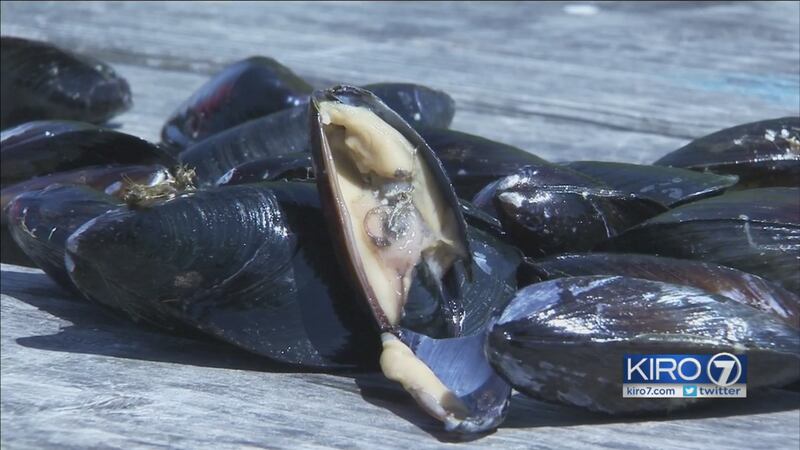The opioid epidemic has now made its way into marine life in the Puget Sound. Scientists who track pollution have for the first time, discovered traces of oxycodone in mussels.
But scientists say those mussels don’t end up on your plate.
The Washington Department of Fish and Wildlife gets clean mussels from Penn Cove on Whidby Island and puts them into areas they want to test for water contamination – like in urban waters.
And they’ve discovered there’s enough oxycodone in Elliot Bay for mussels to test positive.
“What we eat and what we excrete goes into the Puget Sound,” said Jennifer Lanksbury, a biologist at the WA Department of Fish and Wildlife.
Scientists deposit mussels into 18 locations by using cages. They teamed up with the Puget Sound Institute to analyze the data and discovered three locations that came back positive for trace amounts of oxycodone - two near Bremerton's shipyard and Elliot Bay near Harbor Island.
Scroll down to continue reading
More news from KIRO 7
- "Tone Deaf" - Seahawks' Doug Baldwin rips new NFL anthem policy
- Semi crash dumps massive load of feathers, blocks I-5 in Federal Way
- Long-time Seattle glass artist's 'hot shop' to be demolished for luxury apartments
- Police: Teen missing out of Bonney Lake may be with sex offender
- One killed, one injured in mountain lion attack near North Bend
“It’s telling me there's a lot of people taking oxycodone in the Puget Sound area. The contamination is likely coming from wastewater treatment plants,” Lanksbury said.
After people consume oxycodone, some of it ends up in the toilet, and it goes into wastewater. The water gets filtered, but King County Wastewater Management tells KIRO7 although their system can catch a lot of contaminants, it can't specifically filter out drugs.
Scientists with @WDFW testing for water contamination discovered #opioids in some #PugetSound mussels for the first time.
— Deedee Sun (@DeedeeKIRO7) May 24, 2018
What ends up on our plate is perfectly safe (comes from clean areas) BUT the drugs that end up in water can hurt marine life. @KIRO7Seattle pic.twitter.com/R5wYWwC0l1
And opioids, antibiotics, drugs for depression - mussels are testing positive for all of it.
“Those are definitely chemicals that are out there in the nearshore waters and they may be having an impact on the fish and shellfish that live there,” Lanksbury said.
Again, Lanksbury says people have nothing to worry about when it comes to eating mussels from a restaurant or shop because they come from clean locations.
“They’re clean and healthy and delicious. We love to eat mussels from the Puget Sound. We use them for our food and we use them for contaminant analysis,” Lanksbury said.
But the study shows it’s another sign of what's ending up in the water and harming marine life.
“People should be wary,” Lanksbury said. “Hopefully our data shows what’s out there and can get the process started for cleaning up our waters.”
Fish and Wildlife testing mussels for prescription drugs was a one-time study, but it will seek more funding to continue testing and help track what's happening to our water over time.
Cox Media Group








